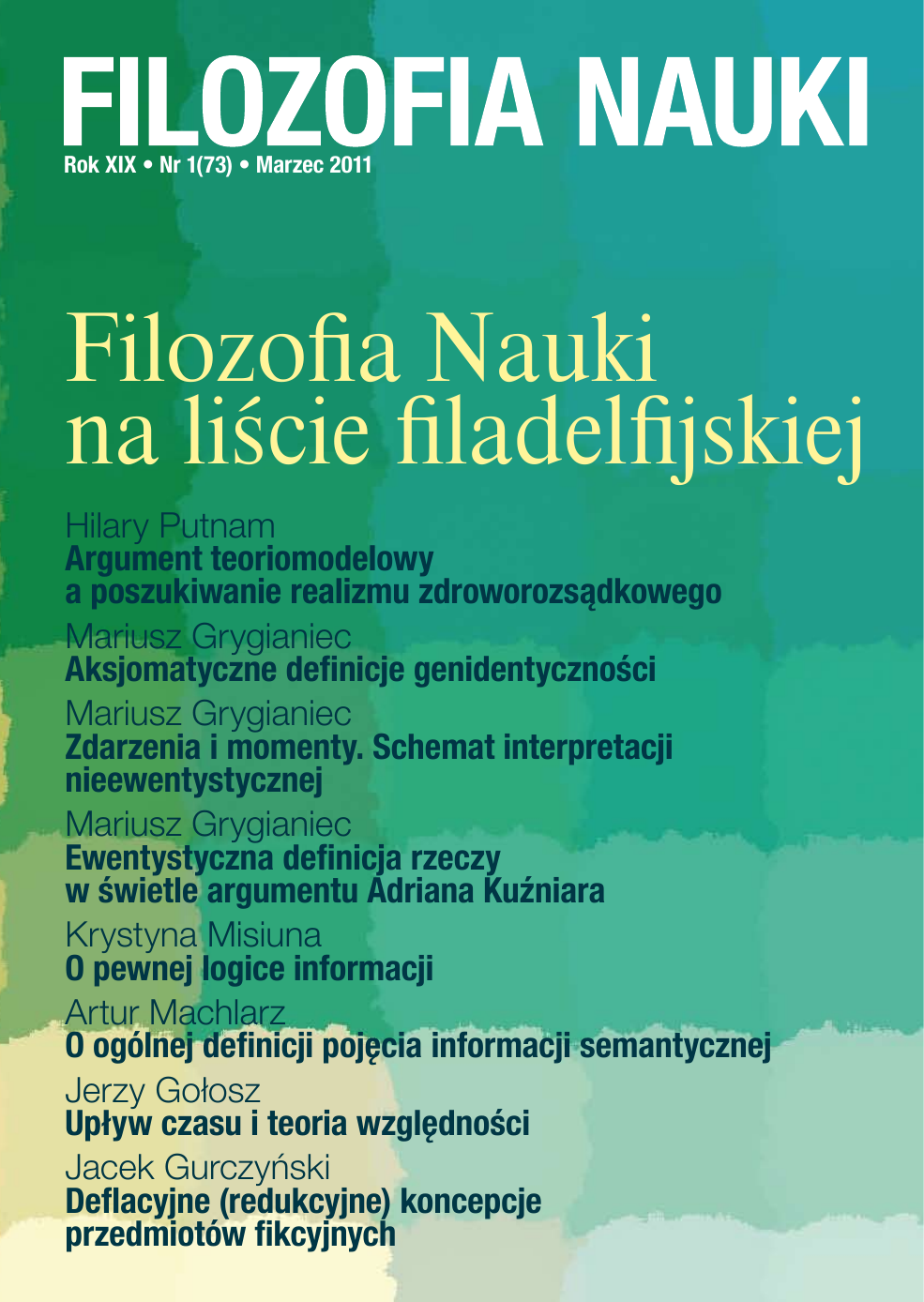Argument teoriomodelowy a poszukiwanie realizmu zdroworozsądkowego
Słowa kluczowe:
model-theoretic argument, metaphysical realism, anti-realism, reference, truth, common sense realism, disquotationalismAbstrakt
The first section of the paper gives a very condensed history of the evolution of the author’s views on realism and anti-realism. It emphasizes that his previously accepted form of anti-realism was abandoned not because of the alleged fallacies in the model-theoretic argument against metaphysical realism, but due to his rejection of some of the assumptions on which it rests — assumptions which have been almost universal in philosophy after Descartes. The second section discusses and defends the part of the model-theoretic argument that many critics have almost universally found fallacious, namely the „just more theory” move. In the appendix to the paper the author elaborates what does his return to common sense realism mean. He points out that his position involves a negative element, the rejection of the idea that truth cannot outrun verifiability, and two positive elements: returning (as close as possible) to „naive realism” with respect to perception, and a disquotational account of truth similar to one endorsed by Wittgenstein.















 Filozofia Nauki | ISSN 1230-6894 | e-ISSN 2657-5868
Filozofia Nauki | ISSN 1230-6894 | e-ISSN 2657-5868